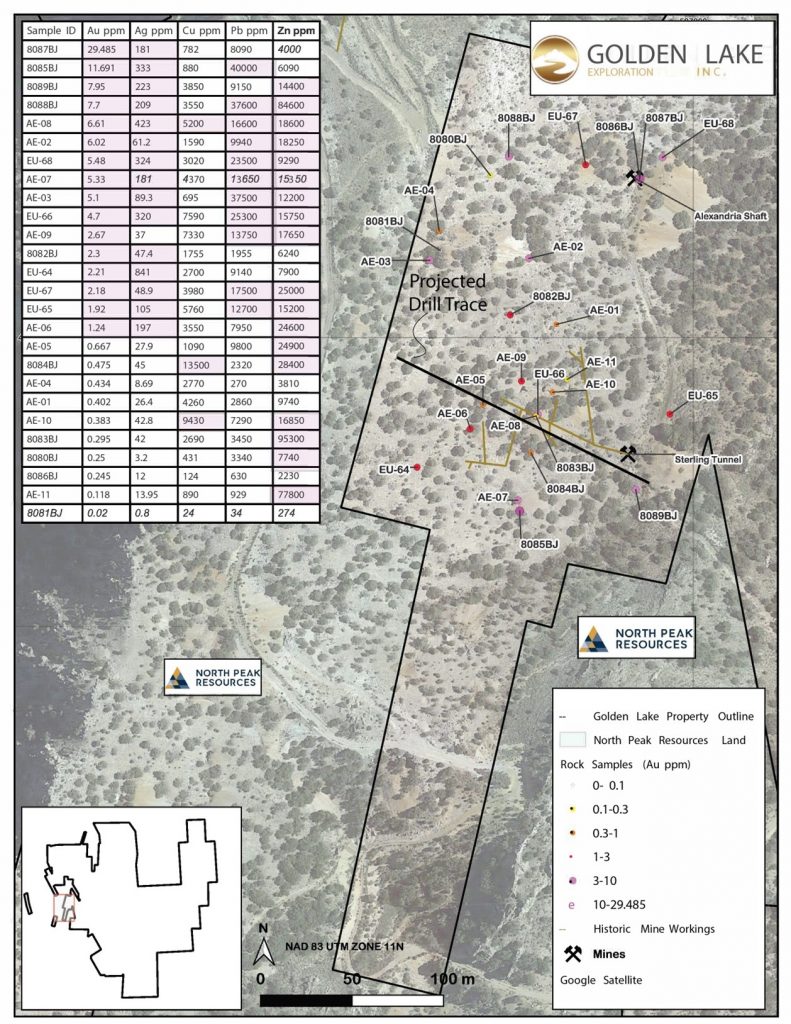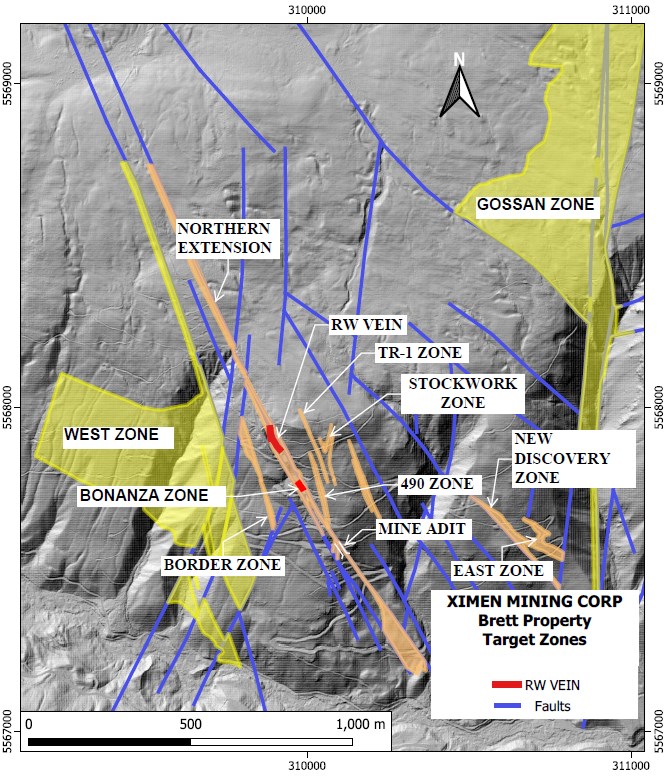Golden Lake Exploration (CSE:GLM) has announced an expansion to its current drilling program, with new plans to include the Sterling Tunnel mine within its Jewel Ridge property in Nevada. This move adds to Golden Lake’s ongoing efforts in one of the most prolific gold regions in the United States, the Battle Mountain-Eureka gold belt in Eureka County, Nevada. The expansion aims to build on the company’s exploration success in the area, which already hosts other significant mining activities by North Peak Resources Ltd. and i-80 Gold Corp.
The Jewel Ridge property, located close to critical infrastructure and adjacent to other high-profile exploration projects, is a central focus of Golden Lake’s exploration strategy. The Sterling Tunnel mine, which is part of this property, features extensive underground workings and several surface pits. These pits have shown high-grade carbonate replacement deposit (CRD) mineralization, a feature that has attracted interest for further drilling.
The mineralization at Sterling Tunnel is hosted in brecciated, altered dolomite, known as Hamburg dolomite. This rock formation has been altered and bleached, with gold and silver mineralization occurring within structurally controlled gossan zones. The mineralization is suggestive of fault zone replacement deposits, a geological feature that can lead to high-grade mineral concentrations.
Golden Lake Exploration has already conducted grab sampling in the area, which yielded promising results. These samples included some high-grade assays of gold, silver, lead, and zinc.
Highlights from these samples include:– 29.49 grams per tonne (g/t) of gold, 181.00 g/t silver, 0.89% lead, and 0.40% zinc
– 11.69 g/t gold, 333.00 g/t silver, 4.00% lead, and 0.61% zinc
– 7.95 g/t gold, 223.00 g/t silver, 0.92% lead, and 1.44% zinc
– 7.70 g/t gold, 209.00 g/t silver, 3.76% lead, and 8.46% zinc
– 0.30 g/t gold, 42.00 g/t silver, 0.35% lead, and 9.53% zinc
While these grab samples are not necessarily representative of the overall grade of the mineralization across the entire site, they provide critical insights into the prospectivity of the Sterling Tunnel mine. The samples were collected by Golden Lake’s personnel and analyzed at ALS Labs in Elko, Nevada, with results showing significant potential for economically viable mineralization. The analysis followed industry-standard procedures, including fire assay for gold and multi-element assays for other minerals.
Despite its historical significance and the evidence of high-grade mineralization, the Sterling Tunnel mine has never been tested by diamond drilling, making this upcoming drill program the first of its kind for the site. Golden Lake Exploration plans to begin drilling at the Sterling Tunnel mine within the next week, with the work expected to take two to three days to complete. Results from the drilling will be released as they become available.
Golden Lake’s decision to expand its drill program comes on the heels of a recent announcement in September 2024, detailing progress on its flagship Jewel Ridge property. The company remains focused on advancing exploration activities in this well-known gold belt, where numerous successful mining operations are underway. By including Sterling Tunnel in the drilling plan, Golden Lake aims to further explore and potentially develop additional resources that could enhance the value of the Jewel Ridge property.
The assays from Sterling Tunnel, analyzed at ALS Labs in Nevada, utilized various sophisticated methods for determining gold and other element concentrations. These methods included the Au-AA23 assay, which employs fire assay techniques combined with atomic absorption, and the ME-MS61 method, which involves four-acid digestion and inductively coupled plasma atomic emission spectroscopy for multi-element analysis. Over-limit samples were further analyzed using the OG62 method, ensuring high levels of accuracy and reliability in the reported data.





